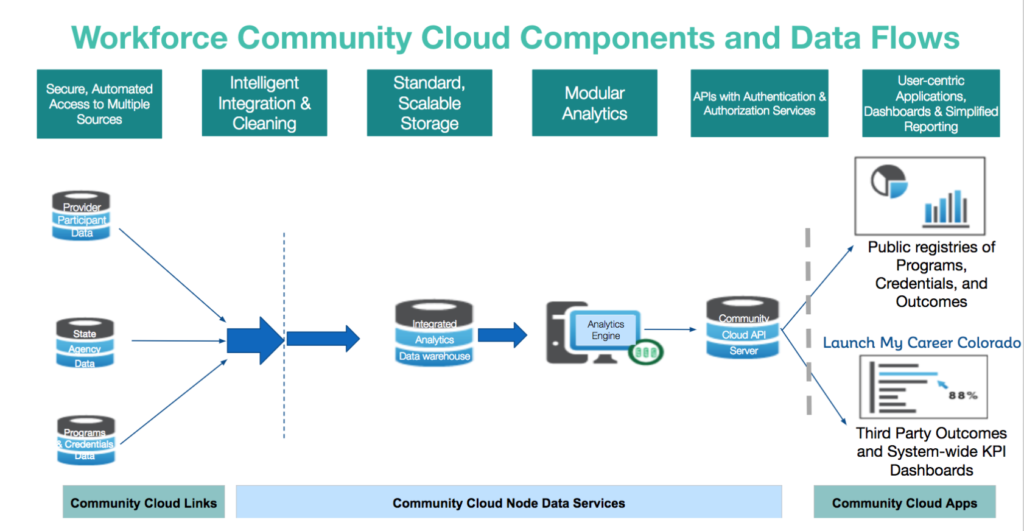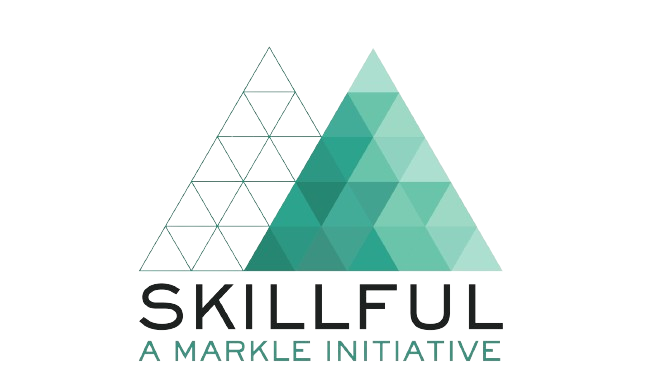“While there may be enough work to maintain full employment to 2030 under most scenarios, the transitions will be very challenging—matching or even exceeding the scale of shifts out of agriculture and manufacturing we have seen in the past.”
These findings come from a recent report released by the McKinsey Global Institute titled “Jobs lost, jobs gained: Workforce transitions in a time of automation.” The report reflects the current anxieties of today’s workforce: employers worry about finding and retaining the talent they need to remain competitive, and workers stress about how to obtain and hone the skills employers want.
Skillful — a non-profit initiative of the Markle Foundation, Microsoft, LinkedIn, and the state of Colorado — works with local partners to achieve a skills-based labor market that works for everyone. Starting by expanding throughout Colorado and then moving to additional states, the partnership aims to create a model that can be replicated across the U.S. to help millions of Americans overcome barriers to obtaining better-paying jobs.
To this end, Skillful has partnered with the company I work for, Brighthive, a data technology company, and the Colorado Department of Higher Education to launch the Training Provider Outcomes Toolkit (TPOT).*
This pilot will provide historical data about how training program graduates fare after they finish their program; people using the Training Provider Outcomes Toolkit will be able to see average wage and employment outcomes of those who have graduated from many of the training programs located in Colorado. Skillful and its partners hope that this platform will have three big benefits:
- Job seekers will be able to make more informed decisions about their education
- Training providers will be able to respond more quickly to market and employer needs, and
- Employers will have a more skilled talent pool from which to hire.
In pursuit of this mission, Skillful and Brighthive aim to cultivate a healthy information ecosystem — by developing the infrastructure to bring people together with data.
During the first phase of the project, we’re intent on improving the flow of data about employment training programs for skilled job seekers who have a high-school degree but lack a college degree. To accomplish this goal, we’ve begun by gathering a registry of providers, programs, and credentials. We want job seekers and educators to know who provides what job-training programs, where these programs are located, and how these programs can be accessed.
How Open Referral Will Help
For TPOT, Open Referral’s Human Services Data Specification (HSDS) and Human Services Data API protocols (HSDA) are a natural fit. The HSDS provides a field-tested vocabulary for gathering directory data about providers. The data schema, now on version 1.1, has been repeatedly reviewed with practitioners in the field and found to match their mental model.
HSDS and HSDA have helped Skillful and Brighthive bootstrap our first prototype of the Eligible Training Providers API, which will publish directory data about every participating workforce training program in the state of Colorado.

What happens next
Stay tuned for more information this spring about an exciting and critical pilot that our dedicated group of Colorado higher education and workforce leaders are carrying out.
About Adam Gillette
Adam Gillette is Director of Program Development at BrightHive, an impact-driven data technology company using data trusts to transform the way social services providers share data, make decisions, and affect the behavioral outcomes of beneficiaries. Contact him at adam[at]brighthive[dot]io
For every product we develop, we seek out existing open source projects and well-developed data standards related to the product goals. By leveraging research, development, and testing work in multiple communities we can produce a better product faster — like checking books out of the library instead of writing each one from scratch.
*
Our thanks to the JP Morgan Chase Foundation, the Sloan Foundation, University of Chicago, and the Workforce Data Quality Campaign for supporting the initial development of the Training Provider Outcomes Toolkit (TPOT).


Leave a Reply